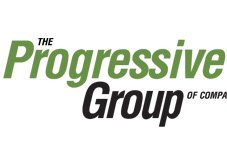Major grocers jointly pledge stall-free pork by 2022
Tuesday Apr 30 2013by www.manitobacooperator.ca
Pork council hopes buyers willing to "share in the investment"
Canada's hog farmer group hopes a new pledge by eight major grocers to source pork from stall-free operations by the end of 2022 will include more than just moral support for farms to make such changes.
Grocer members of the Retail Council of Canada (RCC) jointly announced Monday they will "work towards sourcing fresh pork products from sows raised in alternative housing practices as defined in (upcoming revisions to the national code of practice for pig care) by the end of 2022."
The RCC's grocer members in Canada include Safeway, Costco, Federated Co-operatives, Co-op Atlantic, Loblaw Companies, Metro, Sobeys and Walmart.
The council members said they "further agree to dialogue with other stakeholders in the pork supply chain, including the Canadian Pork Council, and through our membership and committee participation with the National Farm Animal Care Council," which is drafting the new code of practice to release for public comment beginning in June.
Each member company "will implement this commitment in accordance with their own specific business requirements and in consultation with their vendor partners," the RCC said.
The RCC said its voluntary pledge "provides Canadian pork producers with appropriate time to address the issue given the significant financial investment required" and "institutes a dialogue with our supply chain partners to encourage broad industry collaboration in support of this commitment."
Safeway had already announced last year it would start "formulating plans" to source pork from suppliers not using gestation stalls in the housing of breeding sows.
Loblaw, whose store chains include Loblaw, Superstore, Provigo, Extra Foods, Zehrs, T T Supermarket, Dominion and Maxi Cie, more recently announced in its year-end "Corporate Social Responsibility" report that "fresh pork sold in our stores will be sourced from suppliers who have made a transition to loose housing environments by year-end 2022."
Loblaw added in the report that it "will work with the National Farm Animal Care Council (NFACC), the pork industry and governments to advance the upcoming Pig Code of Practice."
"Substantial capital"
The Canadian Pork Council said Monday the RCC's announcement "recognizes that the conversion of sow housing is a significant investment which will require support from other stakeholder groups."
Not only will "substantial capital investments" be required to convert hog farrowing barns out of gestation stalls, but also "considerable human resource efforts" will be needed to choose the right system and train stockpeople to a new way of handing animals, the CPC said.
The pork council said it "looks forward to meeting with RCC to hear its proposals on how changes to sow housing can be managed and how the value chain and others can share in the investment."
"As a farmer, my first priority is the care and welfare of the animals. I am proud that my farm helps the Canadian pork industry provide consumers a healthy and safe food supply," CPC chair Jean-Guy Vincent, a producer from Ste-Seraphine, Que., said in the council's release.
"Any change on-farm must be done in a way that protects the welfare of the animals and keeps Canadian farms strong."
Individual gestation stalls were adopted by hog breeders starting in the 1960s. The model was viewed at that time by the industry as a way to protect pregnant sows from aggressive behaviours displayed by dominant animals in group pens, and to ensure each pregnant sow had full access to feed.
But the gestation stall model has since come under heavy criticism for its limits on sows' movement, as a stall's crate-style metal frame prevents a confined breeding sow from turning around.
Sayara Thurston, a campaigner with Humane Society International in Canada, said Monday the group "applaud(s) the Retail Council of Canada and its members for taking seriously one of the most critical animal welfare issues in food production today."
Given similar announcements by other pork value chain players, Thurston said the Canadian food industry "has made it clearer than ever that these unsustainable and inhumane cages have no future in pork production, and we encourage pork producers to make the transition to group housing systems as quickly as possible."
Responding specifically to Loblaw's pledge in a separate release Monday, Canadian Federation of Humane Societies CEO Barbara Cartwright said the company's decision "puts Loblaw on the side of animal welfare science and public opinion."
Back to News

Hog producers are looking at ways of meeting new animal care requirements as they come into effect (read article)


